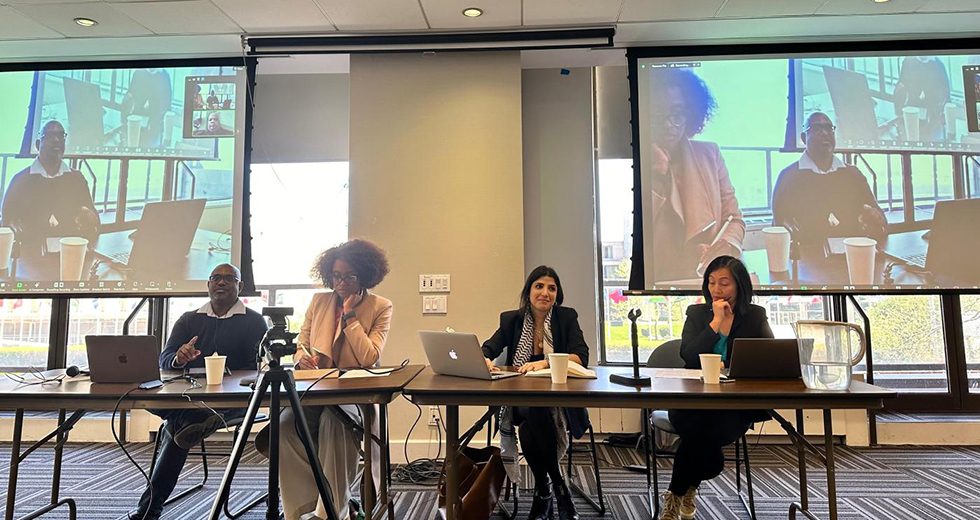Panel focuses on taxes and gender justice
Posted on April 26, 2024 by Phil Tanis

The World Communion of Reformed Churches (WCRC) and its partners organized a side event on 23 April in conjunction with the United Nations Financing for Development Forum, which was held 22-25 April.
The side event, entitled “Can taxing the rich help to close the gender divide? And why should we care?” featured a panel discussion that explored how tax policy, especially capital and wealth taxation, can shape a more gender-just world.
Chenai Mukumba, executive director of the Tax Justice Network Africa, began the discussion by noting that it is important to realize that the relationship between taxes and gender justice differs in every nation.
“It’s important that particularly the countries that suffer most from the inequality are at the table,” she said.
Athena Peralta, director of the World Council of Churches Commission on Climate Justice and Sustainable Development, co-moderated the discussion. She noted that, according to Oxfam, we are living at a moment in which 252 of the richest men have accumulated more wealth than 1 billion women in Africa and Latin America combined.
“So why are wealth taxes critical from a feminist perspective?” she asked the panelists.
Priya Lukka, an economist from Leeds University, reflected that people living in poverty, inequality, and exclusion are not beneficiaries of the tax system, but are instead the net payers.
“I think it’s important to recognize that there are certain structural inequalities, such as race and gender inequality, that are the legacy of colonialism and its mechanisms,” she said.
Philip Peacock, WCRC executive secretary for Justice and Witness, was also a co-moderator of the discussion.
“Women are payers rather than beneficiaries,” he noted, and asked the panelists to reflect on the question: “Why is taxation of multinational corporations a matter of gender justice?”
Mahinour El Badrawi, a researcher for the Center for Economic and Social Rights, pointed out that taxes fall disproportionately on those who are burdened by the cost of living crisis. “And the health crisis, the climate crisis, all the poly-crises that we can think about—and women and and girls are disproportionately affected,” she said.
Uhuru Dempers, director of the Social Development Desk at Evangelical Lutheran Church in the Republic of Namibia, said the discussions, locally and globally, on tax reform are critical for a variety of reasons.
“Taxes are also the building blocks of any society,” he said. “It’s a very powerful tool to use in terms of reducing inequality.”
The event was organized by the World Council of Churches, World Communion of Reformed Churches, Lutheran World Federation, World Methodist Council, and Council for World Mission as part of the New International Financial and Economic Architecture (NIFEA) initiative, along with the All Africa Conference of Churches.
The justice work of the WCRC is supported by funds provided by Otto per Mille and the Council for World Mission.
Article courtesy of WCC. Image: Rebekka Read/WCC
 World Communion of Reformed Churches
World Communion of Reformed Churches